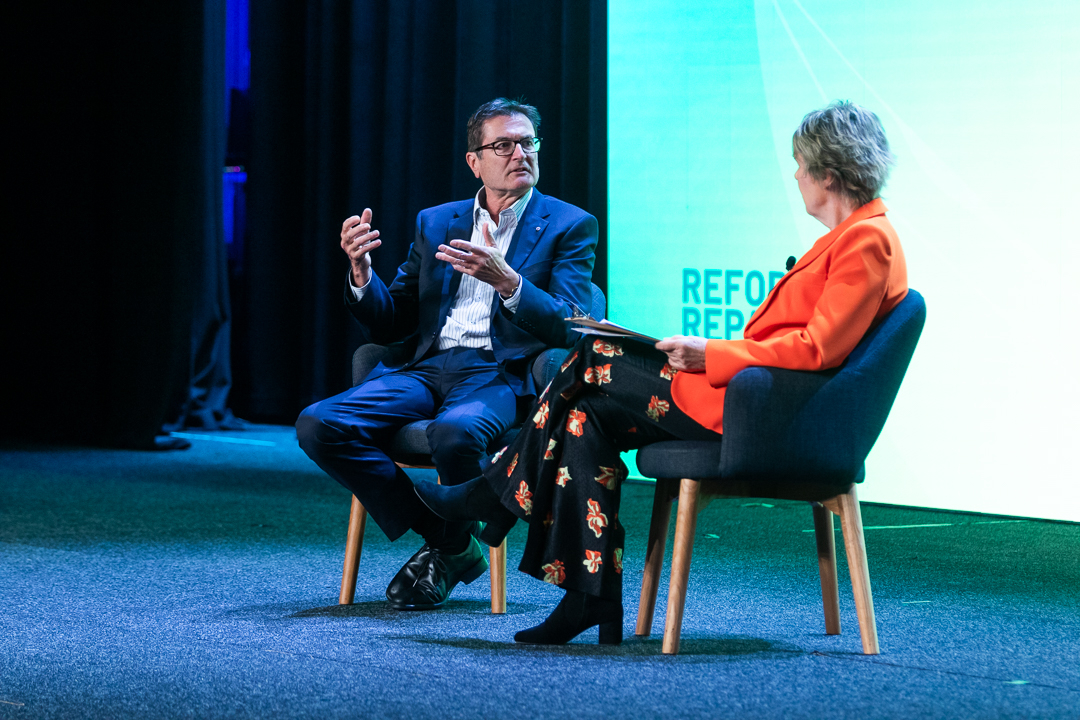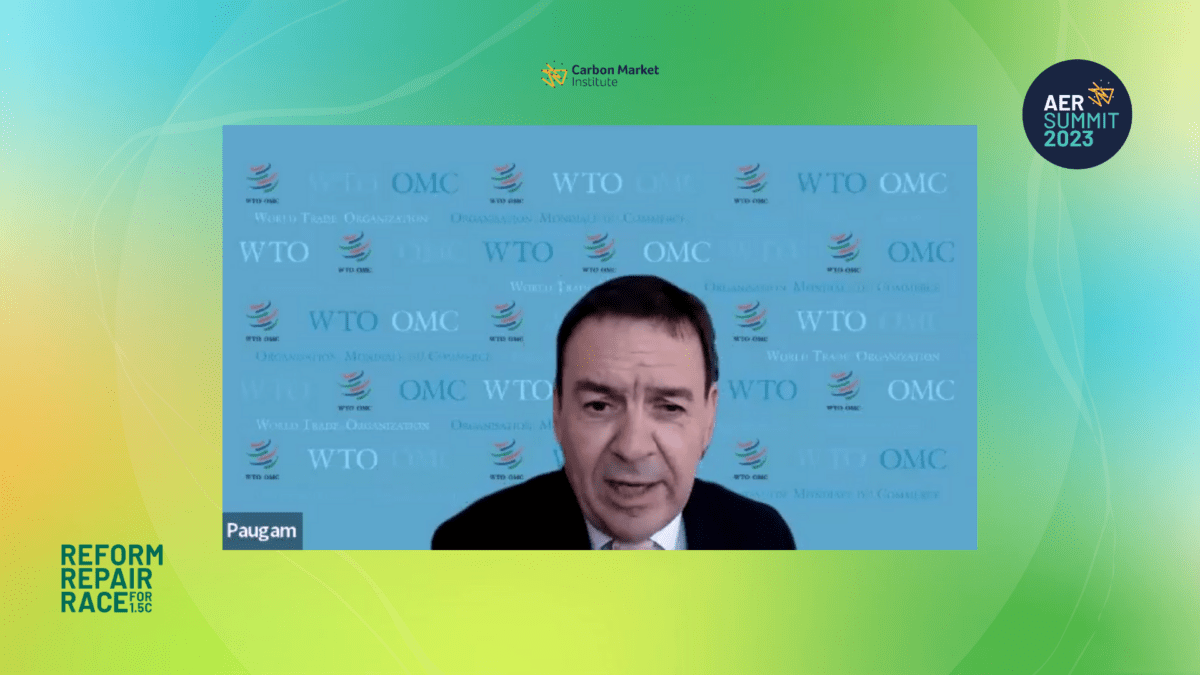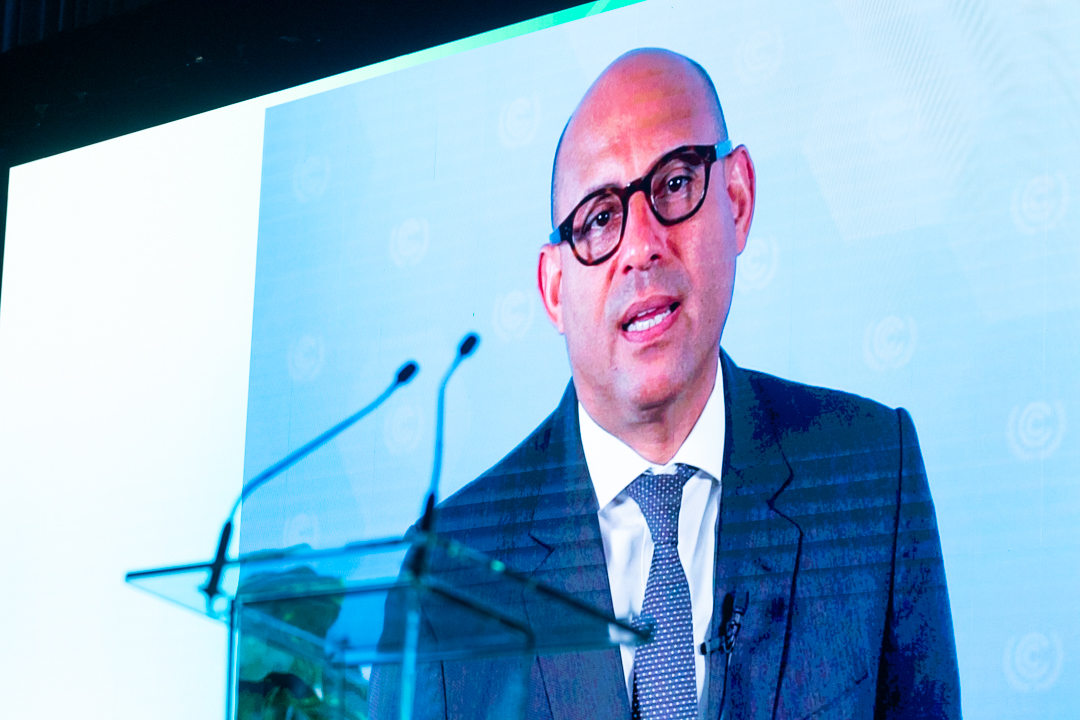New UK guidance for businesses and financial institutions on preparing “gold standard” climate transition plans is likely to have an impact globally, including in Australia, according to a leading climate disclosure expert.
A joint UK government-industry Transition Plan Taskforce, which was established by the UK Treasury in early 2022, will release its final guidance on October 9, Taskforce team leader Jacques Morris told the Carbon Market Institute’s Australasian Emissions Reduction Summit today.
Morris – a keynote speaker at the two-day summit in Sydney – said the work of the Taskforce is being closely watched in many parts of the world – including Australia.
According to Morris, credible transition plans must become “a core part of business strategy”, to ensure companies and financial institutions transform their activities in the manner and timeframe required to meet Paris Agreement goals.
Transition plans will also allow informed scrutiny by regulators, investors, insurers, shareholders, customers, and employees – all of whom are now intensely interested in how businesses are responding to climate change, he said.
The Taskforce’s disclosure framework is built on three principles – ambition, action and accountability – and comprises 19 reporting elements that in combination can deliver a credible transition plan.
The Taskforce framework builds on the Task Force on Climate-Related Financial Disclosures (TCFD) recommendations that are well known to many businesses, Morris noted.
A key difference is that the Taskforce transition plan framework is more explicitly designed to serve as a blueprint for in-house strategy and activities, and to provide stakeholders with more granular information, he said.
The framework is also designed to mesh with the blockbuster International Sustainability Standards Board (ISSB) standard on climate risk disclosure, which was finalised last month, Morris said.
The ISSB standard requires businesses that have a transition plan to disclose it, but unlike the Taskforce framework doesn’t specify what should be in the plan.
Because of their many uses, “transition plans are becoming important considerations for governments”, Morris said.
“Worldwide, we are seeing a pivot to regulation where an increasing number of jurisdictions are bringing in transition plan requirements,” he said, pointing out that the UK intends making them mandatory, and noting that G7 leaders had this year highlighted the need for businesses to move to net-zero based on credible transition plans.
The international Financial Security Board, which aims to ensure the stability of the global financial system and back in 2015 instigated work on the TCFD disclosure recommendations, is also now investigating the role of transition plans, he added.
Chartered Accountants Australia and New Zealand, CPA Australia, the Australian Sustainable Finance Institute, and Australia’s Investor Group on Climate Change, earlier this year made a joint submission to the Taskforce in which they said its work “could have significant value internationally”, including in Australia.
Australia’s Department of Treasury has also proposed disclosure of transition plans in its latest consultation paper on climate-related financial disclosure, Morris noted.
More information on the Transition Plan Taskforce is available here. Or register for the launch of the Taskforce disclosure framework at here.
About the 10th Annual Australasian Emissions Reduction Summit
The Carbon Market Institute’s annual Emissions Reduction Summit is one of the largest and longest-running business and climate action events in the region and is taking place in Sydney today and tomorrow (September 14 and 15).
In the midst of a transformational 12 months for the global economy as it continues to navigate the escalating challenges, scrutiny and real-life impacts of climate change, this year’s Summit will provide a timely pulse-check on business progress, as well as government ambition and international action as leaders prepare for COP28 later this year.
Speakers include Simon Stiell, UNFCCC Executive Secretary, Rachel Kyte, Co-Chair of the Voluntary Carbon Markets Integrity Initiative, and Jean-Marie Paugam, Deputy Director-General of the World Trade Organisation.
About the Carbon Market Institute
The Carbon Market Institute (CMI) is a member-based institute accelerating the transition towards a negative emissions, nature positive world. It champions best practice in carbon markets and climate policy, and its over 150 members include primary producers, carbon project developers, Indigenous organisations, legal, technology and advisory services, insurers, banks, investors, corporate entities and emission intensive industries. The positions put forward constitute CMI’s independent view and do not purport to represent any CMI individual, member company, or industry sector.



